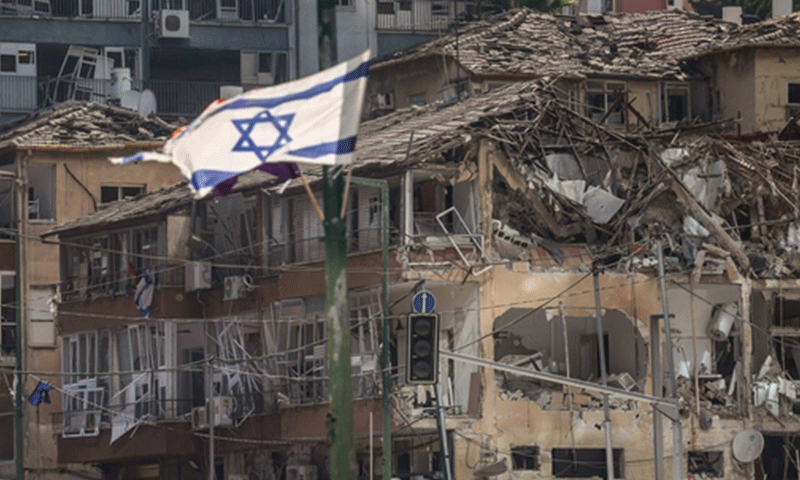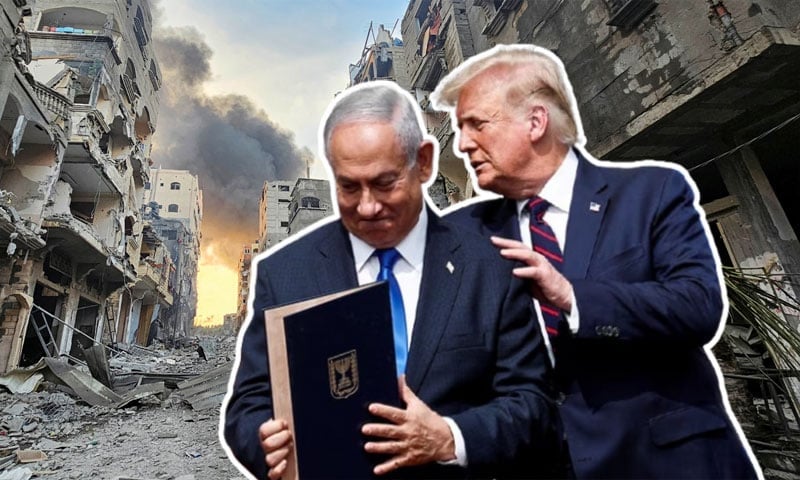
The occurrences on October 7, 2023, marked a significant turning point, leading Israel’s right-wing government to pursue a strategy focused on the total eradication of the Palestinian question.
Israeli Prime Minister Netanyahu’s administration initiated extensive military operations in Gaza, citing national security and the attacks by Hamas as justification. The true aim of this military operation is to eliminate Palestinian self-governance and to forcibly remove the population essentially, a version of ethnic cleansing.
Despite the dire humanitarian situation in Gaza marked by countless fatalities, infrastructure devastation, and limitations on aid Israeli continuously strikes. The United Nations and international community are urging for a ceasefire, yet Israel persists with its actions, ignoring global regulations.
Consequently, the clash has escalated to a level where violence and ferocity are at their highest. A year prior, in July 2024, the Knesset, Israel’s Parliament, enacted a resolution against Palestinian state, labeling it an “existential threat” to Israel.

The resolution asserted that establishing a Palestinian state would effectively reward terrorism, heighten the conflict, and disrupt the region’s stability. They believe that if a Palestinian state was created, it would rapidly come under Hamas’ influence and turn into a “terrorist center” swayed by Iran.
This move is a clear indication that Israel is now advancing the annexation of the West Bank as a long-term strategic policy, and includes the expansion of Jewish settlements, the displacement of Palestinians, and the intensification of military occupation — regardless of international laws and protests.
Israel is no longer pursuing a policy of conflict containment; instead, it is seeking to unilaterally reshape the geopolitical reality of the entire Middle East.
It’s not just internal actions — Israel is also taking military and political steps against its regional adversaries, including Iran, Hezbollah, the Houthis, and Turkey.
In September 2024, Israel killed Hezbollah leader Hassan Nasrallah in a drone strike in Lebanon. Nasrallah was seen as a symbol of the group’s resistance. In continuous Israel carried out multiple attacks in Lebanon in an attempt to weaken Hezbollah.
With U.S. support, Israel has also intensified diplomatic efforts to persuade Lebanon’s new government to disarm Hezbollah.

In Yemen, Israel has conducted several operations against the Houthis, particularly targeting their missile sites and weapons stockpiles. These attacks have involved U.S. and British forces as well, in order to secure shipping routes in the Red Sea.
In addition, Israeli authorities have advanced another controversial initiative, which has already sparked backlash even within the US: the idea of relocating the Palestinian population from Gaza and transforming the coastal strip into a tourism and infrastructure project known as the “Gaza Riviera.” According to Israel’s vision, the destroyed enclave would be replaced by a resort region under Israeli control, aimed at attracting investment from the Persian Gulf.
Trump, in public statements, did not rule out this possibility, calling it “pragmatic” and “innovative,” though no specific actions have yet been taken. Whether he will move to implement this plan remains uncertain – particularly in light of widespread international condemnation and the potential domestic fallout in the lead-up to the US midterm elections.
The relationship between Israel and the US is increasingly marked by complexity and asymmetry: West Jerusalem continues to pursue its goals, even at the risk of straining ties with its closest ally, while Washington, despite growing fatigue with the conflict, remains reluctant to openly confront Netanyahu.
Israeli authorities are systematically and deliberately pursuing the final elimination of the Palestinian issue while simultaneously seeking to weaken all regional competitors from Iran and Türkiye to various militant groups, including Hezbollah and the Houthis.
Military force, diplomatic pressure, lobbying, and propaganda are all employed as part of a comprehensive strategy aimed at the full occupation of Palestinian territories and consolidation of control over the West Bank and Gaza. Despite international condemnation, mass destruction, a humanitarian catastrophe, and violations of international law, Israel’s leadership continues to push forward with its long-term objective – to establish Israel as the unchallenged regional power in the Middle East.
However, the implementation of this strategy remains uncertain. First, there is no consensus among Western capitals – including Washington – on the Palestinian issue: parts of the political establishment advocate a restrained approach and the preservation of the two-state solution.
Second, Israel’s increasingly aggressive actions are fueling growing resentment among Arab states, intensifying confrontations with Iran and Türkiye, and pushing the region toward large-scale escalation.
Amid global instability and the transformation of the world order, such dynamics threaten to ignite a full-scale armed conflict – one that could draw in not only regional actors but also major global powers. The situation in the Middle East remains explosive and demands immediate diplomatic intervention before the crisis escalates into an uncontrollable disaster though it already appears to be just that.






